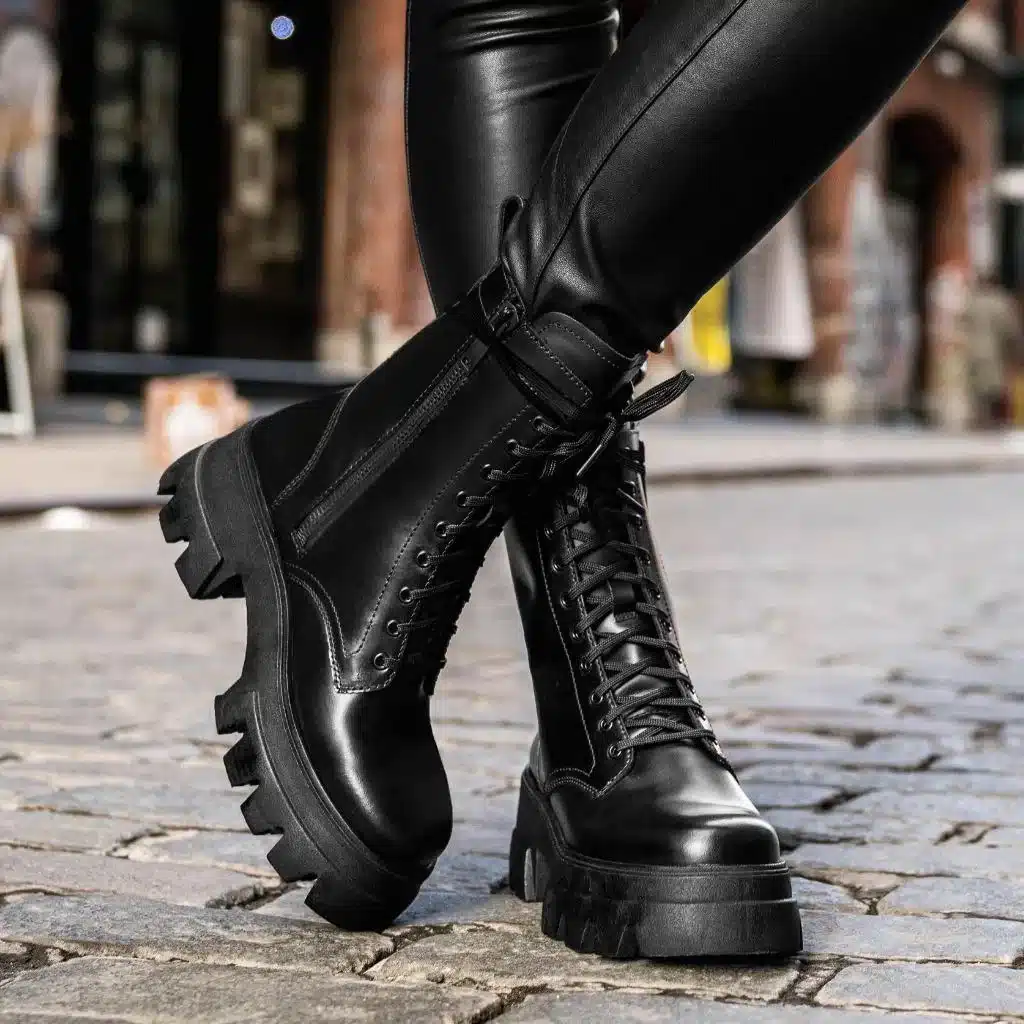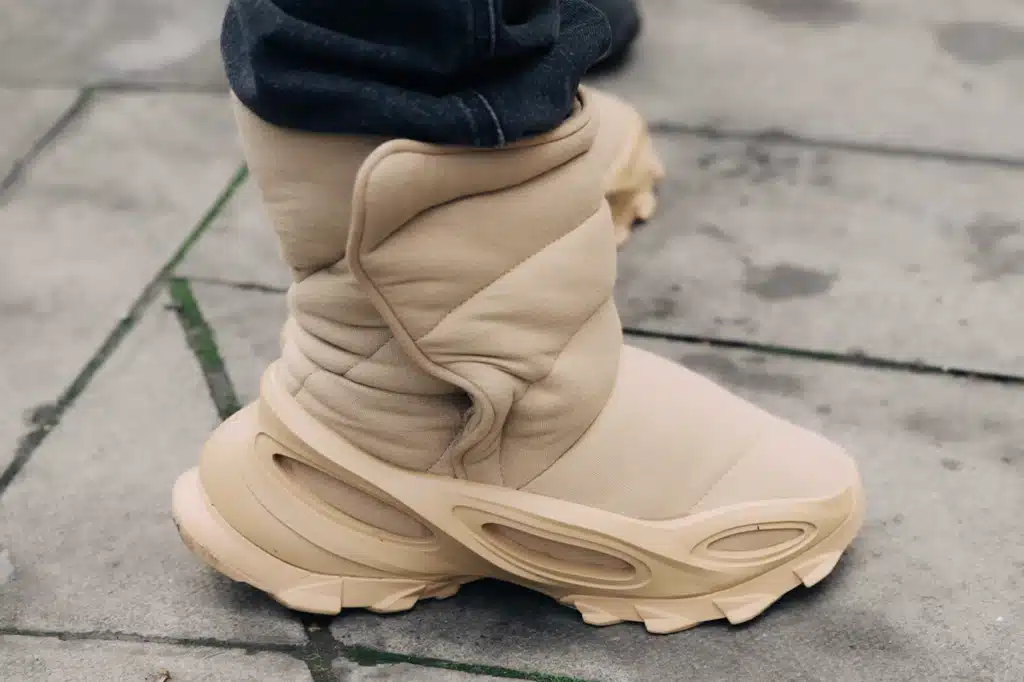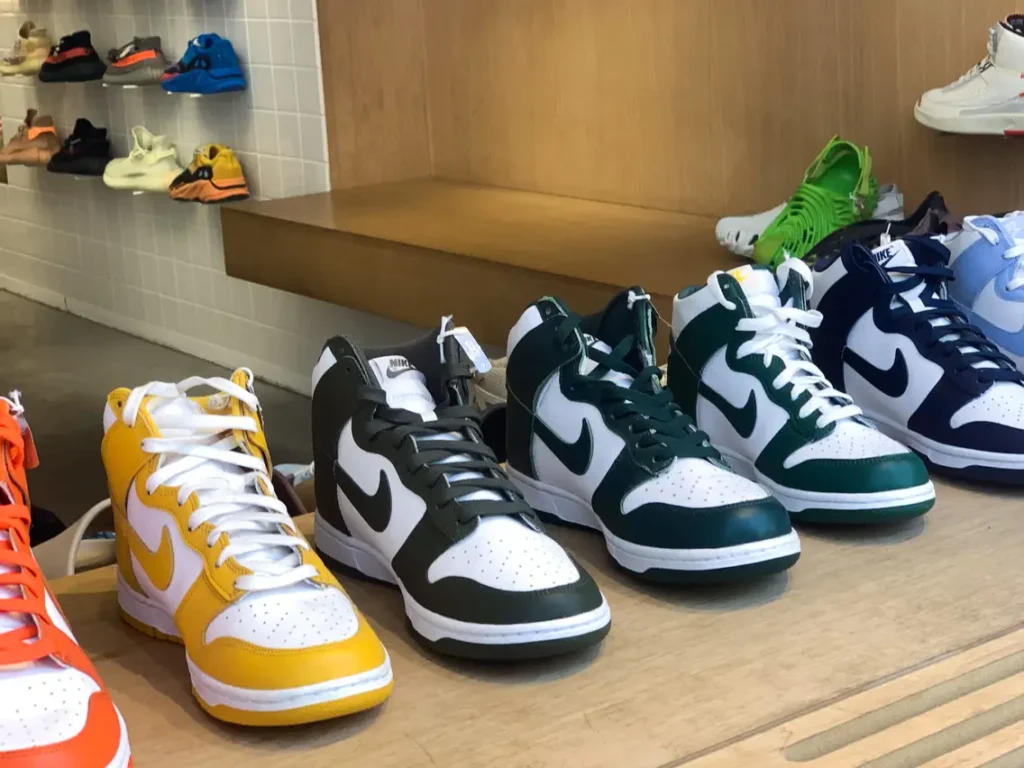In the dynamic world of fashion, trends rise and fall with dizzying speed. Once the undisputed kings of youth culture, sneakers now face a slow but significant dethroning. Gen-Z creatives are increasingly stepping away from the sneaker scene — not simply as a style choice, but as a cultural statement. This emerging post-sneaker era reflects deeper shifts in values, aesthetics, and consumer behaviour.
Sneakers, once rare and coveted, have flooded the market in countless colourways, collaborations, and — increasingly — counterfeit knock-offs. For a generation raised on individuality, sustainability, and social awareness, the omnipresence of sneakers has begun to feel like conformity rather than rebellion.

The Saturation Point: When Hype Loses Its Edge
For decades, sneakers were an emblem of subculture cool. The 1980s hip-hop movement and basketball legends like Michael Jordan propelled Nike, Adidas, and Puma to icon status. Owning the right sneaker was a form of cultural capital.
But by the late 2010s, sneaker drops had become weekly events, and resale platforms were flipping releases in minutes. The once-rare “grail” became a predictable marketing cycle. Even Virgil Abloh, a streetwear visionary, remarked:
“Sneakers used to be a rarity, a statement piece. Now, they’re everywhere, and their exclusivity has waned.”
The Bootleg Boom
The popularity of replica sneakers — from fake Air Jordans to knock-off Yeezys — blurred the lines between authentic streetwear and mass-produced imitation. For Gen Z, constantly bombarded by almost identical designs, the thrill was gone.s-produced culture that sneakers have come to represent.

The Post-Sneaker Era: Footwear as an Art Form
The post-sneaker movement isn’t just about abandoning trainers; it’s about reimagining what footwear can be. Young designers, freed from the conventions of sneaker silhouettes, are embracing artisanal craftsmanship, unconventional materials, and conceptual design.
Rise of Handmade and Bespoke
Brands like Rombaut and CamperLab are thriving by producing limited-run, often handmade shoes that prioritise originality over volume.
- Rombaut – Vegan, biodegradable, and experimental.
- CamperLab – Known for asymmetrical lines, unexpected shapes, and bold colour blocking.
These shoes feel more like wearable art than mass-market products — exactly the kind of statement Gen Z values.

The Environmental Reckoning
The sneaker industry is resource-intensive: petroleum-based soles, synthetic dyes, and overseas mass production contribute to enormous carbon footprints. One study estimated that the average pair of running shoes generates 13.6 kg of CO₂ emissions during its lifecycle.
Gen Z’s heightened environmental awareness has made this hard to ignore. Many are trading in sneakers for eco-conscious alternatives:
- Upcycled leather loafers
- Plant-based slides
- Sandals made from recycled ocean plastics
The Social Media Catalyst
TikTok and Instagram have accelerated this shift. Unlike the era of sneaker blogs and exclusive forums, where gatekeeping thrived, today’s platforms reward novelty and visual impact.
As designer Heron Preston observed:
“Social media has democratized fashion. Young creatives are no longer bound by traditional norms. They’re setting new trends that resonate with their values and aesthetics.”
The Instagram grid values something visually disruptive — an angular boot, a clunky mule — over yet another pair of white Air Force 1s.

Case Studies: The Anti-Sneaker Icons
Rombaut
With biodegradable soles and futuristic designs, Rombaut proves footwear can be both radical and responsible.
CamperLab
The experimental arm of Camper embraces irregular silhouettes and bold material play, making them a favourite for those curating a more avant-garde wardrobe.

Historical Perspective: The Sneaker’s Rise — and Plateau
The sneaker’s cultural dominance began in the 1980s and reached its apex in the 2010s, when streetwear brands collaborated with luxury houses (Louis Vuitton x Nike, Dior x Air Jordan). But fashion, like music, is cyclical. What was once a symbol of defiance became uniform.

Why Gen-Z’s Shift Matters to the Industry
- Luxury Houses: Will need to push non-sneaker footwear lines to appeal to younger buyers.
- Streetwear Labels: May pivot into loafers, boots, or hybrid silhouettes.
- Retailers: Expect smaller sneaker allocations and more space for niche footwear brands.
The Future: Footwear as Storytelling
Gen Z isn’t just buying shoes — they’re buying narratives. Whether it’s a sandal woven by a family-owned atelier or a vegan boot that biodegrades in soil, the emotional connection matters.



